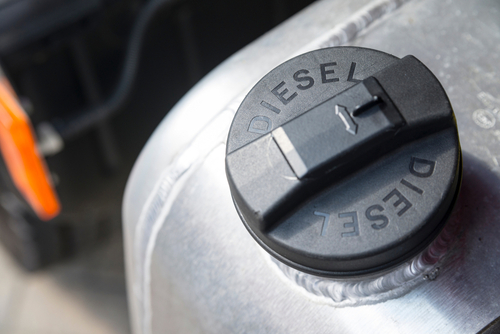Written on: December 4, 2023
 A multitude of businesses in South and Central Oklahoma truly comprehend the indispensable nature of diesel fuels. Whether it’s powering a fleet of vehicles, energizing backup generators, or keeping construction equipment running smoothly, operations would come to a screeching halt without an ample supply of diesel.
A multitude of businesses in South and Central Oklahoma truly comprehend the indispensable nature of diesel fuels. Whether it’s powering a fleet of vehicles, energizing backup generators, or keeping construction equipment running smoothly, operations would come to a screeching halt without an ample supply of diesel.
For over 30 years, Pitmon Oil & Gas has been a trusted provider of top-quality on-road and off-road diesel to businesses. Our comprehensive diesel services include customized delivery, fleet fueling, diesel fuel tanks, and more. Whatever your diesel needs, you can count on us!
We acknowledge that there might be misunderstandings associated with this fuel, and we are committed to addressing them by offering clear and precise information.
The Environmental Protection Agency has implemented stricter emissions standards, prompting diesel producers and engine manufacturers to make significant advancements in reducing emissions. As a result, diesel engines now come equipped with Diesel Particulate Filters, effectively eliminating up to 95% of smoke particles. These innovative measures have not only met the requirements but have also contributed to a cleaner and more sustainable environment.
Furthermore, all diesel fuel available in the United States is now classified as ultra-low-sulfur. Present-day diesel fuel contains a maximum of 15 parts per million (ppm) of sulfur, a significant reduction from the previous levels of up to 3,000 ppm.
It is commonly known that diesel fuel has a tendency to thicken or gel in freezing temperatures, which can pose a challenge for starting diesel engines during winter. This phenomenon occurs due to certain hydrocarbons in the fuel that undergo gelation when the temperature drops below 40 degrees.
Modern-day diesel fuel is fortified with additives that effectively decelerate the gelling process. Additionally, a significant number of diesel vehicles are now equipped with glow plugs, which aid in heating up the fuel to facilitate vaporization.
Diesel, one of the most widely used transportation fuels, has earned its popularity for a reason. Compared to gasoline engines of similar size, diesel engines offer superior fuel efficiency and greater low-end torque. The secret lies in the fact that diesel fuel contains approximately 10% to 15% more energy than gasoline, making it a powerhouse in terms of energy content.
What does this mean for your vehicle? A diesel vehicle can cover approximately 20% to 35% more distance per gallon of fuel compared to a similar gasoline vehicle — and that’s without considering the presence of high-performance additives found in modern premium diesel products.
While the majority of diesel fuel is derived from crude oil distillation, there is a growing proportion sourced from natural and renewable resources such as used commercial cooking oil, plant seed oil, and other biomass. Currently, bio-refineries in the U.S. possess an annual production capacity of 2.3 billion gallons. Biodiesel serves as a sustainable and environmentally friendly alternative to conventional diesel fuel, resulting in significantly reduced carbon impact.
Reliable diesel fuel delivery and service from Pitmon Oil & Gas, your business can grow and prosper! Contact us today to learn more about our commercial fuels services.